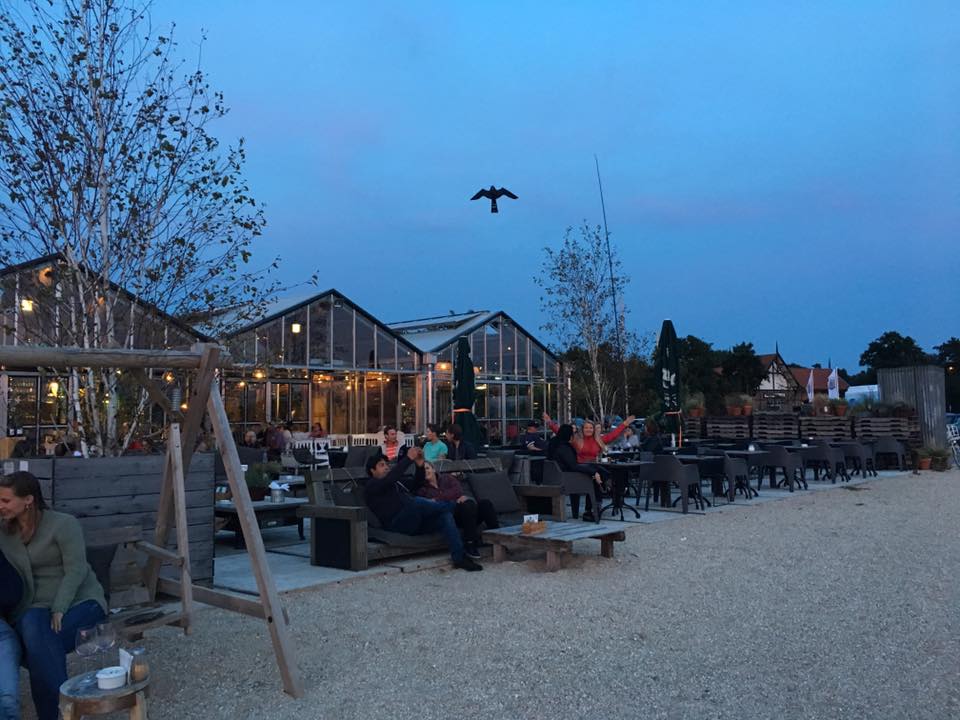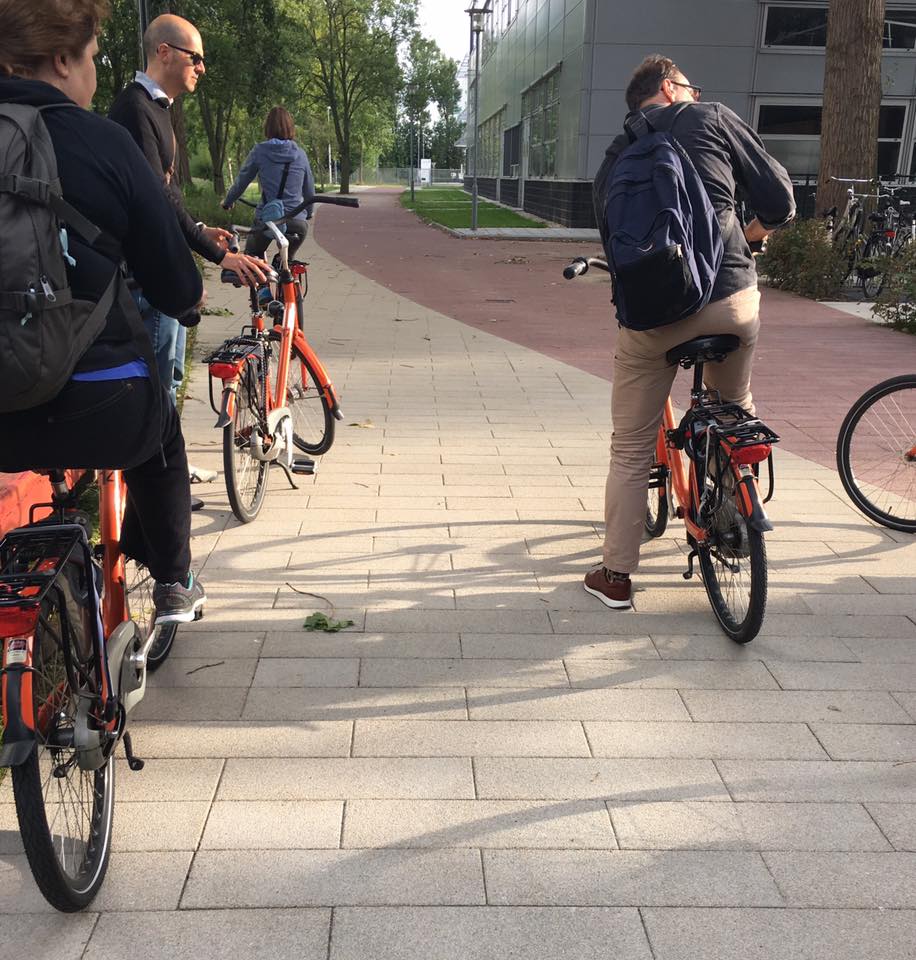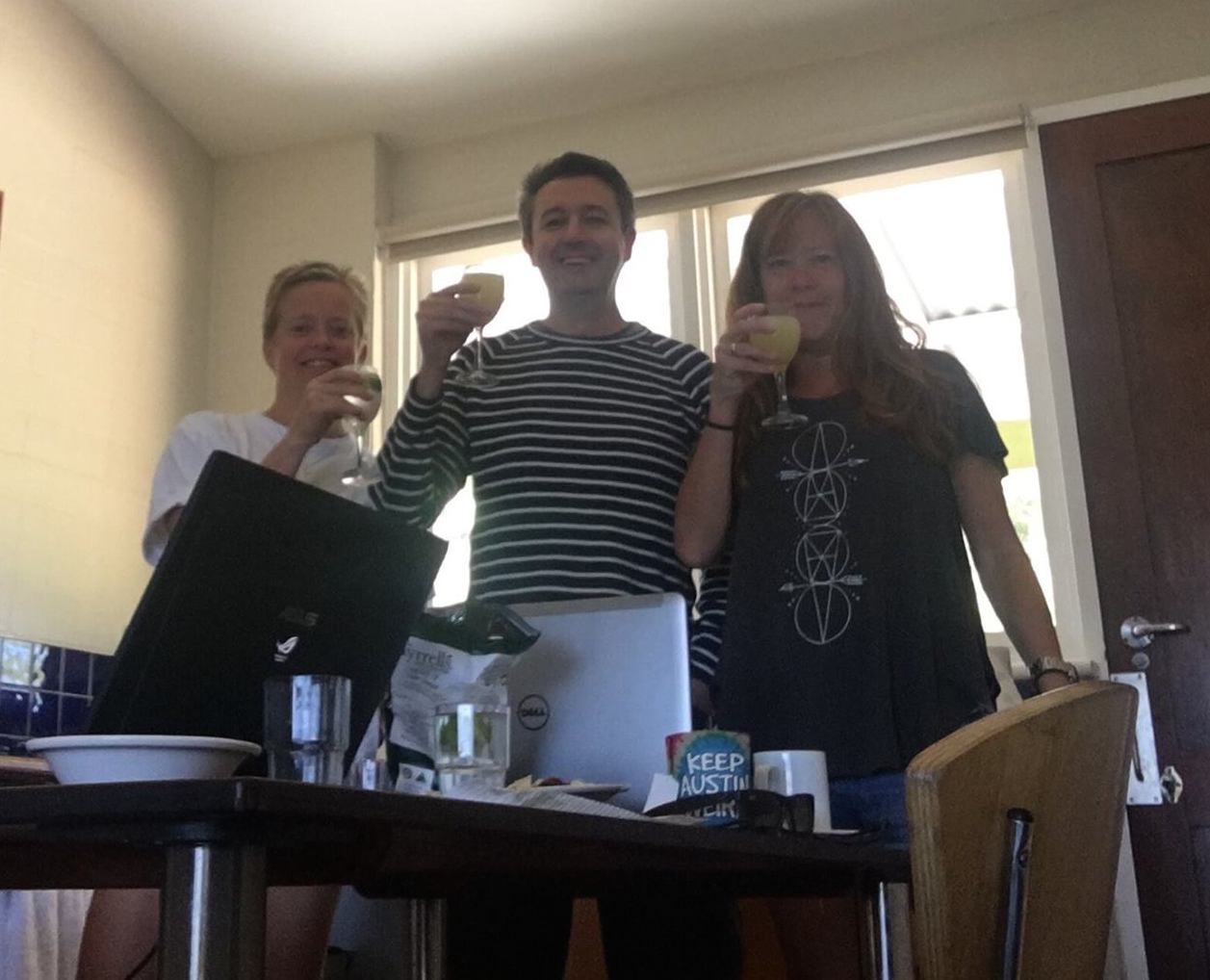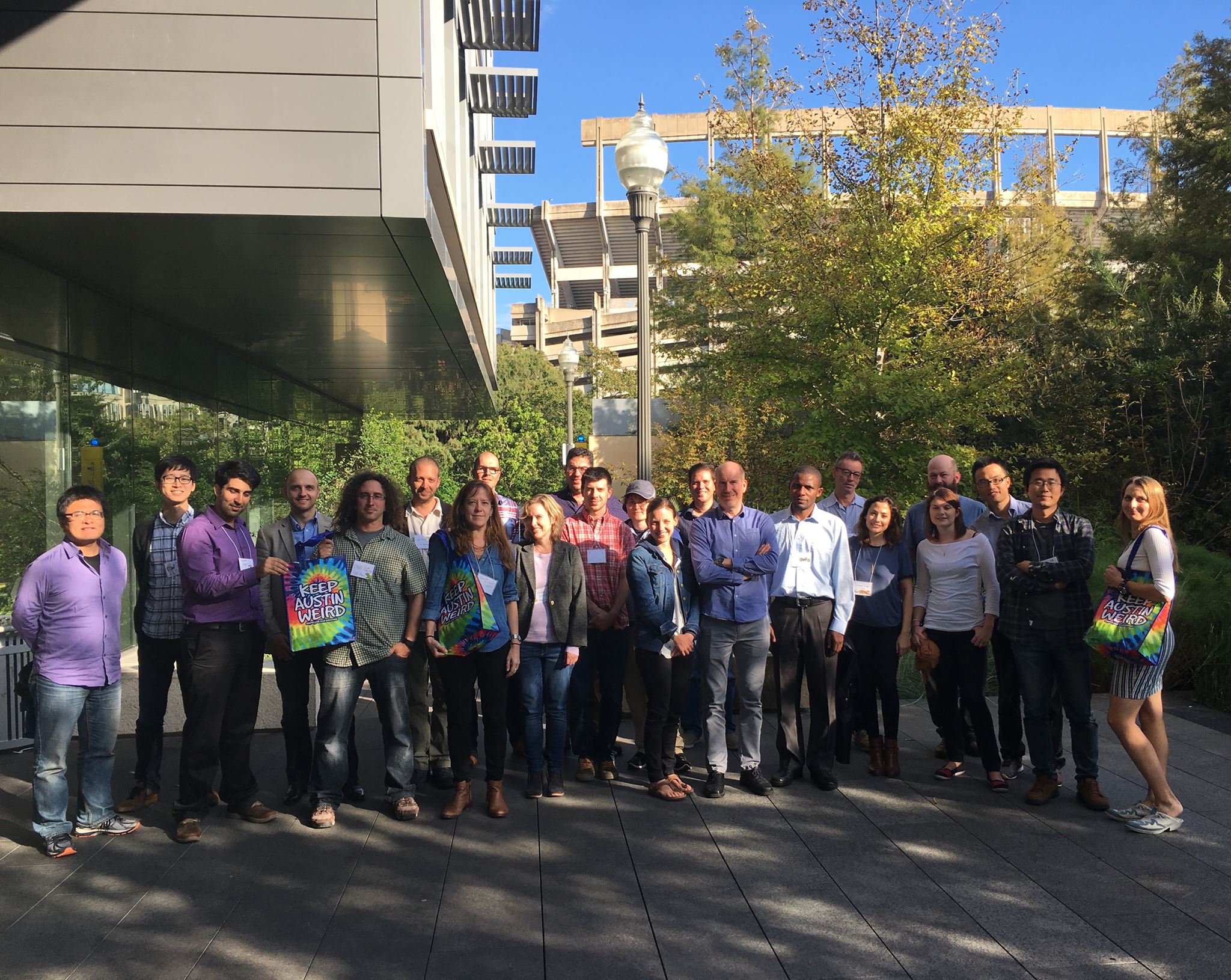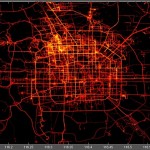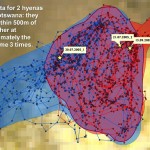Jennifer was back in Europe for a Leiden workshop on Movement: New Sensors, New Data, New Challenges. Lorentz Center (Leiden, The Netherlands), August 21-25, 2017. Jennifer gave a keynote lecture on “Advances & Issues in Spatial Ecology (with applications & implications for Movement pattern analysis and computational movement analysis)”.
We all rented bikes and were able to bike to and from the workshop and to downtown Leiden. The end-of-workshop dinner was on the beach in Katwijk.
